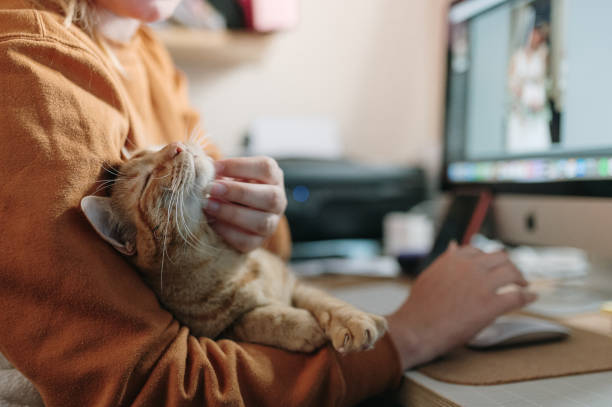Finding somewhere to rent in a desirable location is hard enough, but if you have an animal companion to bring, it makes things even harder. In the United States, there is currently a strong demand for rental properties throughout the country, especially in big cities. For this reason, finding somewhere to live in the right location for an affordable cost that also allows pets can be challenging.
One of the main reasons that landlords are often against allowing pets to stay on their property is due to the risk of damage caused. Other factors include the potential for neighbors to make noise complaints, causing unnecessary hassle for landlords. If other tenants live in the apartment, then the landlord may be concerned about the other occupants having pet allergies. If a landlord accepts pets, they may have restrictions regarding the breed and size of the animals they will allow on their property and may even require you to pay an additional deposit. Below, we will go through some of the main reasons why finding a pet-friendly rental property is so hard.
Landlords are Reluctant to Allow Pets
Renting out a property is a business, and landlords want to ensure that they have the best chance of receiving a steady income from their rental property. Pets can impact the profits they make from renting out their property due to the increased risk of damage and other issues that come with allowing pets to stay in co living apartments with other tenants. It is the legal right of the landlord to set regulations around the property they are renting out, meaning they are allowed to refuse to accept pets or create special rules.
Landlords are liable for any issues caused by allowing pets to stay on their property. This means there isn’t just a risk of damage to the property or issues from allergens and dust left on carpets and upholstery. A landlord can be held responsible if a pet that they have authorized to stay in their rental property causes injury to another person. For this reason, many landlords have taken the safer route of refusing people who wish to have pets live with them in their rental property.
The Upside for Landlords Who Allow Pets

Due to the risks for landlords accepting pets, it has caused a shortage in the number of properties that allow you to bring pets with you. This has caused a very high demand for this type of accommodation, which gets snatched up very quickly in an already competitive market. A report in 2021 found that around 72% of those renting a property with a pet agreed that it was tough to find housing that accepted their companion.
However, it is not all downsides for the few landlords who do decide to accept pets into their rental property. First of all, these landlords have an opportunity to make more money as there is only a finite number of properties that allow pets, meaning the people are willing to pay more. Additionally, those living with pets are potentially less likely to move on to another property soon, reducing the tenancy turnover rates. This means less work for landlords trying to fill empty rooms and a more steady income from renters. It also means that tenants are more likely to be happy as they have been allowed to bring their best friend with them, whereas many other landlords would not let them.
More Effort Required to Rent with Pets

For landlords that do permit pets to stay with renters, there is usually more paperwork required for pet owners to sign. These include documentation showing that the pet won’t create problems. Renters must often be aware of several pet policies before they agree to sign any documents. It is not uncommon for landlords to ask for proof of a pet’s “good behavior” to show that you can trust the renter and their pet that there won’t be any issues. Landlords may also wish to meet the pet so they can make their own decision about whether or not they want the animal living in their rental property.
Pet Fees for Rentals are Expensive
Suppose you find yourself in a position to find a rental property that is in a perfect location for you. Still, you need to persuade the landlord to accept your pet; you may have to be willing to spend a little extra money. This can sometimes be in the form of what is known as “pet fees,” which can add up to quite a significant amount. These pet fees cover property damages through a deposit and increased monthly rent. You may even have to pay a one-time payment to have a pet stay with you in the first place. You must know these costs before you agree to rent from any landlord.
Those with a pet will understand that their companion is not just an animal that stays with them. They are a family member, meaning it is essential to find somewhere that can accommodate them. However, it is crucial to be aware of the extra hurdles you may face while trying to find a property that will accept you both at a reasonable rate.
